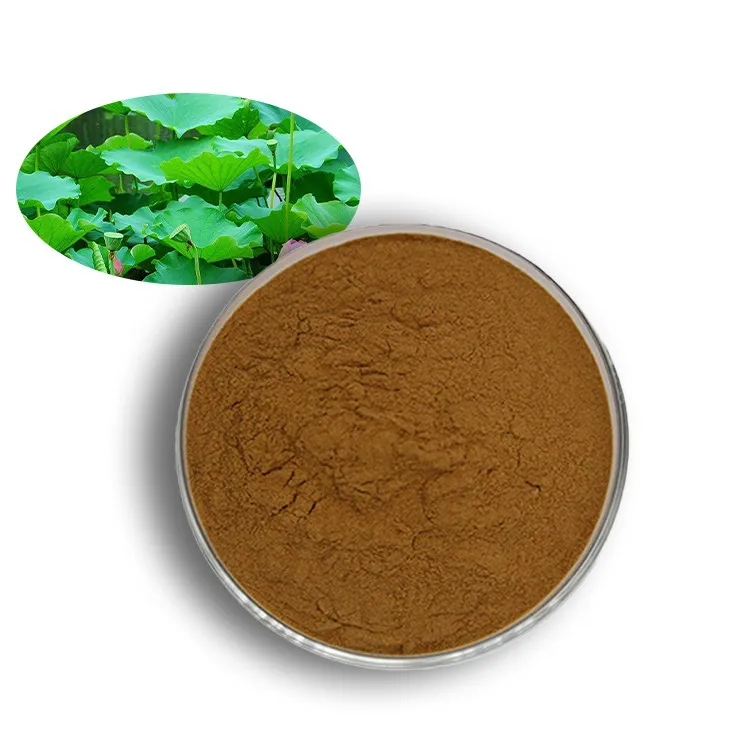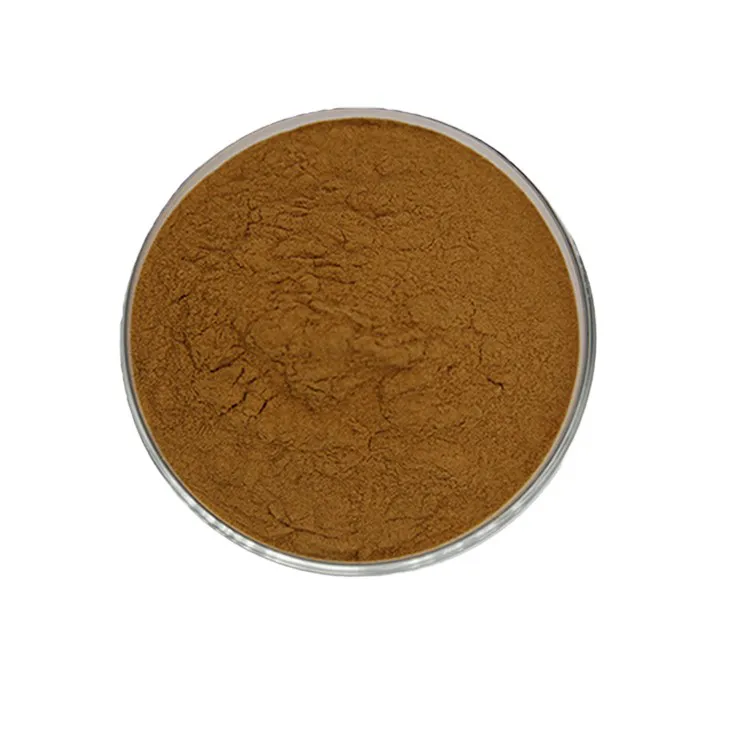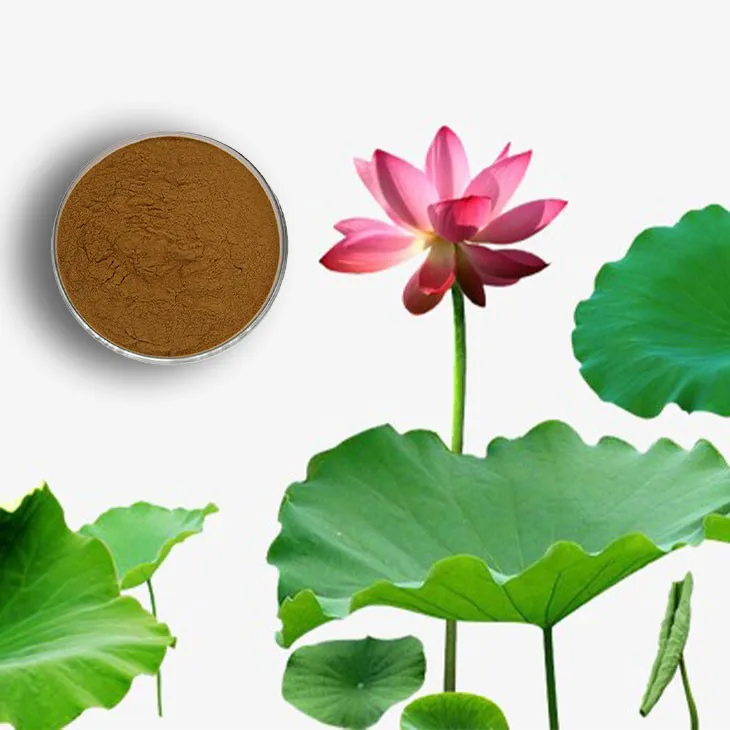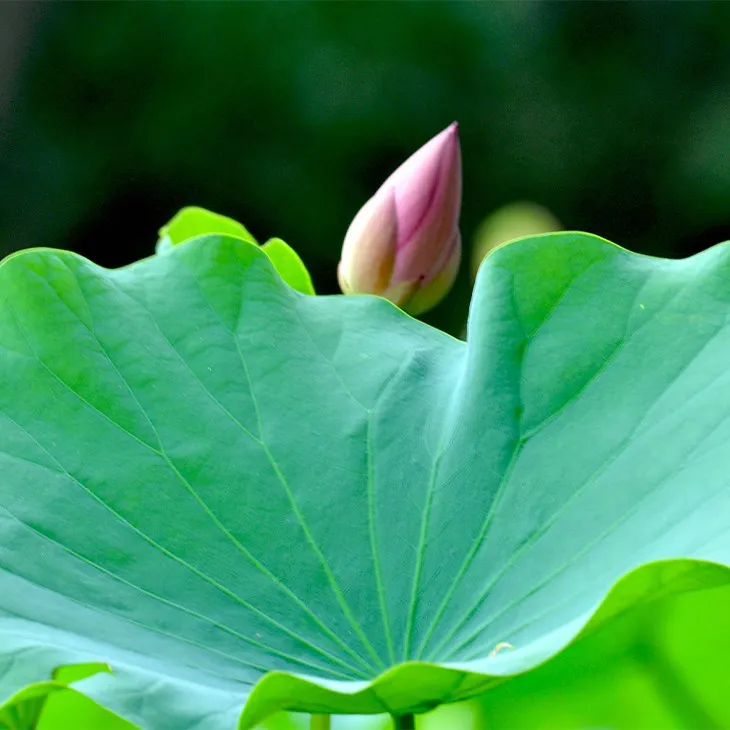- 0086-571-85302990
- sales@greenskybio.com
The flavor of mature lotus leaves and natural lotus leaf extracts.
2024-11-13

1. Introduction
The lotus plant has long been a symbol of purity, beauty, and grace in many cultures around the world. While the lotus flower often steals the spotlight, the mature lotus leaves also possess unique characteristics that are worthy of exploration. In particular, the flavor of mature lotus leaves and the properties of natural Lotus leaf extracts are of great interest. This article will delve into these aspects, exploring their significance, composition, and applications in various industries.

2. The Flavor of Mature Lotus Leaves
2.1 A Subtle and Complex Scent
The flavor of mature lotus leaves is a subtle and complex scent that is difficult to describe in simple terms. It has a fresh, earthy undertone with a hint of sweetness. When one approaches a lotus pond filled with mature leaves, a gentle breeze may carry this unique aroma, which is both calming and invigorating. This scent is not overpowering but rather lingers delicately in the air, creating an atmosphere of tranquility.
2.2 Cultural Significance
In Asian cultures, the lotus leaf flavor has deep cultural significance. For example, in Chinese cuisine, lotus leaves are used in some traditional dishes not only for their flavor but also for their symbolic meaning. Lotus leaf - wrapped rice is a popular dish, where the rice absorbs the faint flavor of the lotus leaf during the steaming process, imparting a unique taste. This reflects the cultural value placed on the lotus plant as a whole, with the leaf's flavor being an integral part of the culinary heritage.
2.3 Practical Significance in Cuisine
From a practical perspective in cooking, the flavor of mature lotus leaves can add a distinct touch to various dishes. It can enhance the overall flavor profile by providing a natural, herbal note. In addition to the aforementioned lotus - leaf - wrapped rice, lotus leaves can also be used in making soups or stews. The slow cooking process allows the flavors of the lotus leaf to infuse into the liquid, creating a more complex and interesting taste. Moreover, the lotus leaf can act as a natural wrapper, preventing the food from drying out during cooking and adding an element of visual appeal.
3. Natural Lotus leaf extract
3.1 Bioactive Compounds
Natural Lotus leaf extract is rich in bioactive compounds. One of the important components is alkaloids, which have been the subject of numerous scientific studies. These alkaloids are believed to possess various biological activities, such as antioxidant and anti - inflammatory properties. Another significant group of compounds are flavonoids, which are known for their antioxidant capabilities and potential health benefits. The presence of these bioactive compounds makes the lotus leaf extract a valuable natural resource.
3.2 Health - Promoting Properties
The bioactive compounds in lotus leaf extract contribute to its health - promoting properties. The antioxidant properties help to combat oxidative stress in the body. Oxidative stress is associated with various diseases, including heart disease, cancer, and neurodegenerative disorders. By neutralizing free radicals, the lotus leaf extract may play a role in preventing or reducing the risk of these diseases. Additionally, the anti - inflammatory properties can be beneficial for conditions such as arthritis, where inflammation is a key factor in pain and joint damage.
3.3 Role in Wellness
In the context of overall wellness, lotus leaf extract can also have an impact on metabolism. Some studies suggest that it may help in regulating blood sugar levels, which is crucial for individuals with diabetes or those at risk of developing the disease. It may also aid in weight management by influencing lipid metabolism. Furthermore, the extract has been investigated for its potential to improve digestion. The presence of certain compounds may stimulate the secretion of digestive enzymes, promoting better absorption of nutrients from food.
4. The Relationship between the Flavor and the Extract
4.1 Shared Chemical Components
The flavor of mature lotus leaves and the natural lotus leaf extract are related through shared chemical components. The compounds that contribute to the unique flavor of the lotus leaf, such as certain volatile oils, are also part of the extract. These volatile oils not only give the leaf its characteristic smell but also possess some of the bioactive properties found in the extract. For example, some of the oils may have antimicrobial properties, which are relevant both in terms of the flavor (as they can affect the overall quality of the leaf) and the extract's potential applications in health and wellness.
4.2 Influence on Perception
The flavor of the lotus leaf can also influence the perception of the extract's properties. For consumers, the familiar and pleasant flavor of the lotus leaf may make the extract more appealing when used in products such as herbal teas or dietary supplements. The association between the flavor and the potential health benefits can create a positive perception, leading to greater acceptance of products containing lotus leaf extract. On the other hand, the extract can be used to enhance or preserve the flavor of lotus - leaf - based products. For instance, in the production of lotus - leaf - flavored beverages, the extract can be added to ensure a consistent and long - lasting flavor.
5. Applications in Different Industries
5.1 Herbal Remedies
In the field of herbal remedies, lotus leaf extract has been used for centuries in traditional medicine systems. It is often prescribed for ailments related to digestion, such as indigestion and bloating. The anti - inflammatory and antioxidant properties make it a valuable ingredient in herbal formulations. For example, it may be combined with other herbs to create a tea blend that is believed to soothe the digestive tract. Additionally, in some traditional Asian medicine practices, lotus leaf extract is used topically for skin conditions, as it is thought to have a cooling and soothing effect on inflamed skin.
5.2 Cosmetics and Skincare
The beauty industry has also recognized the potential of lotus leaf extract. In high - end skincare products, the extract is used for its antioxidant and anti - aging properties. It can help to protect the skin from environmental damage, such as UV radiation and pollution. The extract is often incorporated into creams, lotions, and serums. For example, a lotus - leaf - extract - based face cream may claim to reduce the appearance of wrinkles and improve skin elasticity. Additionally, the natural and pleasant flavor of the lotus leaf can add a unique selling point to these products, appealing to consumers who prefer natural - scented skincare items.
5.3 Food and Beverage Industry
In the food and beverage industry, the flavor of mature lotus leaves and the extract are used in a variety of ways. As mentioned earlier, lotus - leaf - wrapped foods are a traditional application. In addition, the extract can be used to flavor beverages such as teas and juices. Lotus - leaf - flavored tea has become increasingly popular in recent years, both for its unique taste and the perceived health benefits associated with the lotus leaf. The extract can also be added to confectionery items, such as candies and chewing gums, to provide a novel and natural flavor.
5.4 Aromatherapy
Aromatherapy is another area where the lotus leaf flavor and extract can be utilized. The essential oil derived from lotus leaves, which is related to the extract, can be used in diffusers or added to massage oils. The calming and relaxing scent of the lotus leaf can help to reduce stress and anxiety, promoting a sense of well - being. In aromatherapy sessions, the aroma of the lotus leaf can create a serene and peaceful environment, similar to the atmosphere around a lotus pond.6. Conclusion
The flavor of mature lotus leaves and natural lotus leaf extracts are both fascinating aspects of the lotus plant. The unique flavor has cultural and practical significance in cuisine, while the extract is rich in bioactive compounds with numerous potential health benefits. The relationship between the flavor and the extract is intertwined, influencing each other's perception and applications. Their utilization in various industries, from herbal remedies to high - end skincare products, showcases the versatility and value of the lotus leaf. As research continues to uncover more about the properties of lotus leaves and their extracts, we can expect to see even more innovative applications in the future.
FAQ:
What are the main components of the flavor of mature lotus leaves?
The flavor of mature lotus leaves is a complex combination of various components. It may include some volatile organic compounds such as terpenes and aldehydes, which contribute to its unique and subtle smell. These components are often the result of the plant's natural metabolic processes and can be influenced by factors like the growing environment and the stage of maturity of the lotus leaves.
How are natural lotus leaf extracts obtained?
Natural lotus leaf extracts are typically obtained through extraction methods. One common method is solvent extraction, where a suitable solvent (such as ethanol or water) is used to dissolve the bioactive compounds from the lotus leaves. Another method could be supercritical fluid extraction, which uses a supercritical fluid (like supercritical carbon dioxide) to extract the desired components with high selectivity. After extraction, the solvent or fluid is removed to obtain the concentrated extract.
What are the health benefits associated with natural lotus leaf extracts?
Natural lotus leaf extracts are rich in bioactive compounds. Some of the potential health benefits include antioxidant properties, which can help combat oxidative stress in the body. They may also have anti - inflammatory effects, which could be beneficial for various inflammatory conditions. Additionally, there are studies suggesting that certain compounds in lotus leaf extracts may have a role in regulating blood sugar levels and lipid metabolism, although more research is needed to fully understand these effects.
How is the flavor of mature lotus leaves used in the food industry?
In the food industry, the flavor of mature lotus leaves can be used in several ways. It can be used as a natural flavoring agent in products like tea, where it imparts a unique and refreshing taste. Some traditional confectionery and desserts may also use the essence of lotus leaves to add a distinct flavor. Additionally, in some Asian cuisines, lotus leaves are used to wrap food items during cooking or steaming, which not only imparts a flavor but also gives a unique aroma to the food.
What makes natural lotus leaf extracts suitable for high - end skincare products?
Natural lotus leaf extracts are suitable for high - end skincare products due to their bioactive compounds. The antioxidant properties of these extracts can help protect the skin from damage caused by free radicals, which are associated with aging. They may also have anti - inflammatory properties that can soothe irritated skin. Moreover, the natural origin of the extract makes it an attractive ingredient for consumers who prefer natural and organic skincare products.
Related literature
- The Chemical Composition and Flavor Characteristics of Lotus Leaves"
- "Bioactive Compounds in Natural Lotus Leaf Extracts: A Review of Their Health - Promoting Properties"
- "Utilization of Lotus Leaf Flavor and Extract in the Food and Cosmetic Industries"
- ▶ Hesperidin
- ▶ citrus bioflavonoids
- ▶ plant extract
- ▶ lycopene
- ▶ Diosmin
- ▶ Grape seed extract
- ▶ Sea buckthorn Juice Powder
- ▶ Beetroot powder
- ▶ Hops Extract
- ▶ Artichoke Extract
- ▶ Reishi mushroom extract
- ▶ Astaxanthin
- ▶ Green Tea Extract
- ▶ Curcumin Extract
- ▶ Horse Chestnut Extract
- ▶ Other Problems
- ▶ Boswellia Serrata Extract
- ▶ Resveratrol Extract
- ▶ Marigold Extract
- ▶ Grape Leaf Extract
- ▶ blog3
-
High purity olive leaf extract
2024-11-13
-
Lavender oil extraction method
2024-11-13
-
100% organic virgin sea buckthorn fruit oil
2024-11-13
-
Lotus leaf extract powder factory in China
2024-11-13
-
China aged garlic extract supplier
2024-11-13
-
Deer antler extract powder manufacturer
2024-11-13
-
Saw palmetto extract vs whole herb
2024-11-13
-
Ivy Extract
2024-11-13
-
Citrus Aurantium Extract
2024-11-13
-
Tongkat Ali Extract
2024-11-13
-
Yohimbine Bark Extract
2024-11-13
-
Passionflower Extract
2024-11-13
-
Carrageenan Extract Powder
2024-11-13
-
Pomegranate Extract
2024-11-13
-
Black Rice Extract
2024-11-13
-
Konjac Powder
2024-11-13
-
Agaricus Blazei Extract
2024-11-13





















